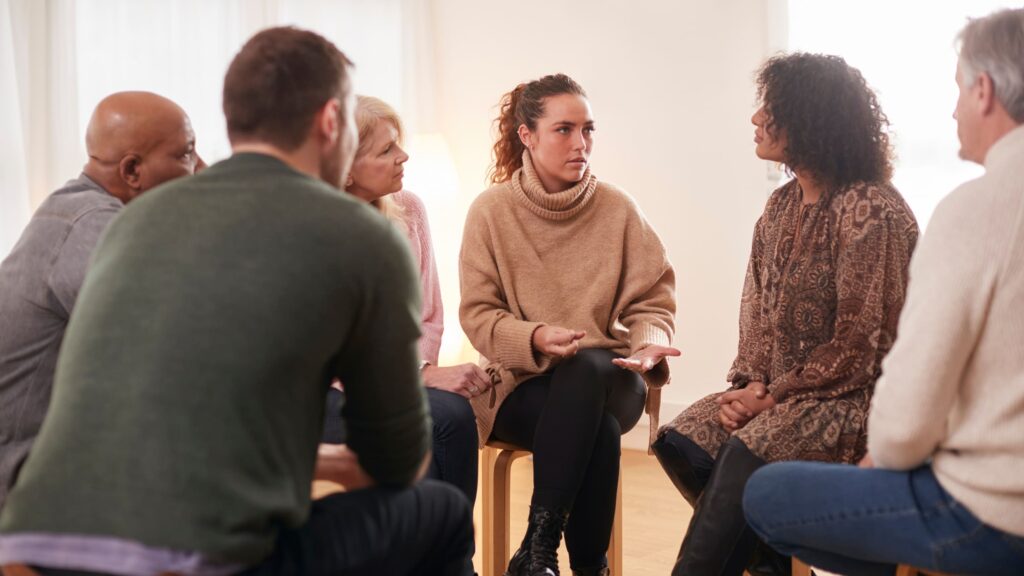How to Help a Loved One With Addiction: Complete Guide
Addiction is a deeply personal and painful disease that affects not only the individual but also their entire network of family and friends. Understanding how to help a loved one with addiction can be overwhelming. Whether the problem involves alcohol, opioids, or other substances, knowing what to say, how to act, and what resources are available is crucial. Those who care deeply about someone struggling with addiction often need both practical guidance and emotional clarity during a time that is filled with confusion and fear.
Recognizing the Signs Early
It is often difficult to identify addiction in its early stages. Behavioral changes such as secrecy, mood swings, financial problems, neglect of responsibilities, or social withdrawal may be the first indicators. Physical signs might include weight loss, poor hygiene, and unusual sleep patterns. Substance-specific signs can vary, but any sustained change in personality or behavior warrants attention.
In some cases, you may notice declining work or academic performance, missed appointments, or increasingly strained relationships. People struggling with drug addiction may isolate themselves or start spending time with new social circles that raise concerns. They might lie about their whereabouts or display defensive behavior when questioned. These signs, though subtle at first, often escalate over time.
If you’re wondering how to help a family member with addiction, the first step is recognizing the signs early to intervene before the problem worsens. While it may be tempting to hope things will resolve on their own, early, compassionate action can lead to more effective recovery outcomes. If you are unsure, seeking a professional opinion can provide clarity and next steps.

Supporting a Loved One Without Pushing Them Away
Supporting a loved one starts with empathy. Many people struggle to understand how to help someone with addiction without overstepping or enabling. Avoid blame or shame, and instead, express concern in a supportive and nonjudgmental way. Statements like “I have noticed you’re struggling, and I care about you,” often open more doors than confrontational approaches.
Set clear, healthy boundaries. Do not enable destructive behavior, such as covering for missed work or providing money without accountability. Enabling often feels like helping, but it can delay the need for real change. Instead, offer emotional support and help them access professional care.
Understanding the Difference Between Support and Enabling
Support means being present, listening, and offering encouragement. If you are learning how to help a loved one with addiction, understanding this distinction is key. True support involves standing beside them as they face consequences and move toward recovery.
Enabling, on the other hand, involves actions that protect your loved one from the natural outcomes of their choices. These actions may be well-intentioned, but they ultimately perpetuate the addiction cycle. Examples of enabling include:
- Paying rent when they have spent money on drugs or alcohol
- Lying to protect them from legal or professional consequences
- Ignoring problematic behaviors to avoid conflict
- Making excuses for their substance use
- Taking over their responsibilities to keep them comfortable
Over time, enabling can undermine the urgency or motivation to seek treatment. Families may become emotionally and physically drained, often feeling trapped between wanting to help and recognizing the harm their actions may be causing.
Breaking enabling patterns is not easy and often requires external guidance. Participating in family therapy or joining a support group such as Al-Anon can provide insight, encouragement, and tools to navigate this challenging balance. At Extra Mile Recovery, we understand that helping an addict also means supporting the family. That’s why we offer emotional support for families of drug addicts and work closely with them to build healthier dynamics grounded in firm boundaries and compassionate care.

Encouraging a Loved One to Seek Help for Substance Use
If alcohol is the primary concern, learning how to get someone to stop drinking requires patience and understanding. It is essential not to give ultimatums unless prepared to follow through. Encouraging professional help through an alcohol addiction treatment program, like those at Extra Mile Recovery, is more effective than pressuring someone to quit on their own. Treatment for alcohol or drug addiction may include residential care and extended care, supported by therapies that address the root causes of substance use.
Guiding a Loved One Toward Treatment
The decision to seek treatment must come from the individual, but families can play a vital role in guiding that decision. If you’re wondering how to help a loved one with addiction and guide them into rehab, the recovery process often starts with honest, empathetic communication. Planning an intervention with the help of a licensed professional can sometimes break through denial. In other cases, consistent, compassionate conversations may gradually influence their willingness to change.
Extra Mile Recovery offers comprehensive care, including dual diagnosis treatment for those facing both addiction and mental health challenges such as anxiety, PTSD, depression, or bipolar disorder. This integrated approach is especially helpful when trying to support a loved one with complex emotional needs.
Helping an Alcoholic Friend: How to Offer Emotional Support
When a friend is dealing with alcoholism and you’re wondering how to get someone to stop drinking, trust and consistency are essential. Helping an alcoholic friend starts with being someone they can talk to without fear of judgment. Avoid offering advice unless asked, and never attempt to “diagnose” them. Gently offer resources, such as connections to treatment programs or local recovery meetings.
If they express readiness, help them explore treatment options, like our residential or extended care programs. Many people feel intimidated by the idea of treatment, and knowing someone will walk with them through the process can ease that fear.
Finding Support as a Family Member of Someone with Addiction
Families often carry the emotional burden of addiction for years, sometimes silently. Finding support for families of drug addicts is a critical step in healing. At our center, we believe families need education, space to express their emotions, and tools to set boundaries.
We offer family therapy as part of our treatment services, helping relatives understand addiction, navigate communication barriers, and rebuild relationships. You can also explore our dedicated resources for loved ones to find tools customized for families in crisis.

Understanding the Role of Professional Support in Recovery
When learning how to help a loved one with addiction, it’s important to understand that, while some may reduce or stop substance use temporarily on their own, addiction is a chronic disease that usually requires structured support. So, can an addict recover on their own? It is rare and difficult. Without professional guidance and accountability, relapse is more likely.
Recovery involves addressing both the addiction and its root causes, such as trauma, mental health disorders, or environmental stressors. This holistic care is best provided in a therapeutic setting like Extra Mile Recovery, which offers dual diagnosis care, relapse prevention planning, and evidence-based therapies.
Sustaining Support for a Family Member in Recovery
Recovery is not a one-time event; it is a lifelong journey. Knowing how to help a family member with addiction over time means continuing to offer support while also caring for your well-being. Establish a plan for post-treatment care. Attend family therapy if possible. Learn the signs of relapse and keep communication open.
Once your loved one enters recovery, your role shifts from intervention to support. As highlighted in our guide on how to support a loved one in recovery, maintaining healthy boundaries and encouraging accountability are key during this phase.
Supporting a Spouse in Recovery
A spouse struggling with addiction presents unique emotional challenges. Addiction can break trust and compromise the stability of the home. Begin by educating yourself about addiction and recovery. Attend couples or family therapy if appropriate. Our facility offers targeted support for partners through family programming and therapeutic services designed to help support a spouse in addiction recovery.

Treatment Programs That Make a Difference
At Extra Mile Recovery, we provide compassionate, evidence-based care. If you are looking for how to help a loved one with addiction, connecting them to the right treatment program is often the most important step. Our programs are developed to meet individuals wherever they are in their recovery journey:
Residential Treatment
Our residential treatment program offers 24/7 care in a safe, structured setting exclusively for men. Clients engage in daily therapy, life-skills development, and support groups that prepare them for long-term sobriety.
Extended Care Program
Extended Care is ideal for those who need ongoing structure after completing initial treatment. It focuses on relapse prevention, accountability, and a gradual transition back to independent living.
Our addiction recovery services include individual therapy, group therapy, family counseling, relapse prevention, and 12-step facilitation, all developed to support both the individual and their loved ones.
Frequently Asked Questions (FAQs)
What are the signs that my loved one may need professional treatment?
Look for sudden changes in mood, behavior, hygiene, or responsibilities. When substance use disrupts relationships, work, or mental health, it is time to seek help.
What should I avoid saying to someone with an addiction?
Avoid shame-based comments or ultimatums. When learning how to help someone with addiction, focus on empathy and encourage them to seek professional support.
What if my loved one refuses treatment?
Maintain boundaries and keep offering support. A consistent, caring presence can encourage them over time.
How do I encourage a loved one to consider treatment?
Have open, honest conversations and express concern without judgment. Offer to help explore treatment options together.
How can I set healthy boundaries without cutting them off?
When helping an addict, be clear and consistent about what behaviors you will and will not accept. Boundaries protect both you and your loved one.
What role can I play during and after their treatment?
Stay involved through family therapy and ongoing communication. Support their recovery by encouraging accountability and routine.
Suffering from Alcohol Addiction? You’re Not Alone
Reach Out to Us Today — We Can Help
Learn How to Help a Loved One With Addiction and Reclaim Hope
If you are wondering how to help a loved one with addiction, know that your support matters. You cannot force recovery, but you can be a steady, compassionate presence that encourages change. The first step is often the hardest for both of you. That is why Extra Mile Recovery is here.
We offer personalized treatment plans, family resources, and dedicated care teams ready to walk this journey with you. We support your loved one—and we support you, too—with the resources and guidance your family needs to heal together. Reach out today to learn how we can help your loved one and your family heal.
Apply For Treatment
Complete the Form Below to Start Your Treatment Application Today
